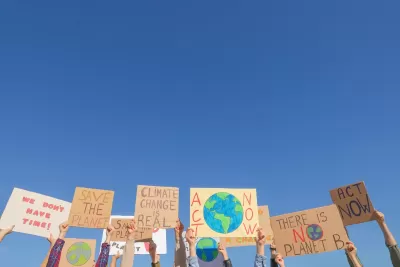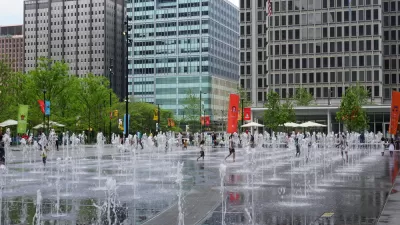A recent study found that the terms “climate change” and “global warming” are more familiar and generate greater public concern than less recognized terms like “climate crisis” and “climate justice.”

A University of Southern California (USC) study published in Climatic Change reveals that the terms “climate change” and “global warming” are more familiar to the public and generate greater concern than less recognized terms like “climate crisis,” “climate emergency,” and “climate justice.” The study found that almost 90 percent of respondents were familiar with “climate change” and “global warming,” while only 33 percent recognized “climate justice.” This familiarity significantly influences how people perceive and respond to environmental issues.
The research also explored the connection between terminology and public willingness to support climate-friendly policies and lifestyle changes, such as reducing red meat consumption. Although overall support for climate action was consistent across different terms, the study noted that familiarity with terms like “climate change” increased the urgency felt by respondents. Political affiliation played a significant role in shaping responses, with Democrats and Independents expressing more concern and willingness to act than Republicans.
A notable finding of the study was the polarization of the term “climate justice,” which was recognized and supported by a higher percentage of Democrats compared to Republicans. The researchers suggest that the political connotations and lesser-known nature of the term contribute to its lower resonance among the general public. The study emphasizes the importance of using familiar terminology when communicating about climate issues to ensure broader public engagement and concern.
The study was conducted with 5,137 U.S. residents and included contributions from scholars at various USC schools. It highlights the critical role of language in shaping public attitudes toward climate change and underscores the need for strategic communication in advancing climate policy and action.
FULL STORY: Study: Just Say “Climate Change” – not “Climate Emergency”

Alabama: Trump Terminates Settlements for Black Communities Harmed By Raw Sewage
Trump deemed the landmark civil rights agreement “illegal DEI and environmental justice policy.”

Study: Maui’s Plan to Convert Vacation Rentals to Long-Term Housing Could Cause Nearly $1 Billion Economic Loss
The plan would reduce visitor accommodation by 25% resulting in 1,900 jobs lost.

Planetizen Federal Action Tracker
A weekly monitor of how Trump’s orders and actions are impacting planners and planning in America.

Federal Homelessness Agency Places Entire Staff on Leave
The U.S. Interagency Council on Homelessness is the only federal agency dedicated to preventing and ending homelessness.

Restoring Northern India’s Himalayan ‘Water Temples’
Thousands of centuries-old buildings protect the region’s natural springs and serve as community wells and gathering places.

Milwaukee to Double Bike Share Stations
Bublr Bikes, one of the nation’s most successful, will add 500 new e-bikes to its system.
Urban Design for Planners 1: Software Tools
This six-course series explores essential urban design concepts using open source software and equips planners with the tools they need to participate fully in the urban design process.
Planning for Universal Design
Learn the tools for implementing Universal Design in planning regulations.
Caltrans
Smith Gee Studio
Institute for Housing and Urban Development Studies (IHS)
City of Grandview
Harvard GSD Executive Education
Toledo-Lucas County Plan Commissions
Salt Lake City
NYU Wagner Graduate School of Public Service





























